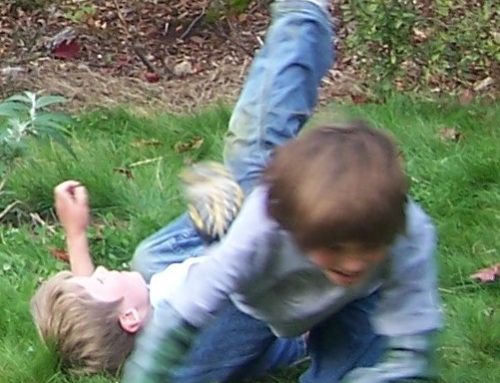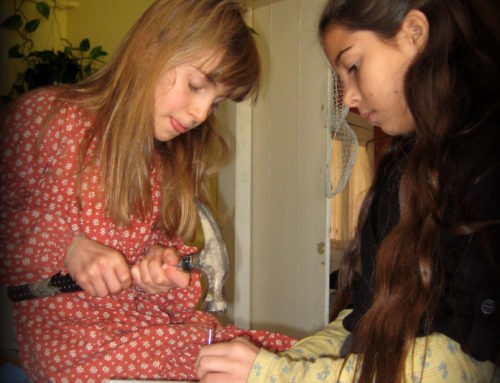How do we cultivate in children a sense of care or consideration for others, a sense of responsibility and participation in the human community? While accountability and responsibility are important this does not mean that we use authoritarian power and punishment to “teach” someone a lesson. Like in any caring relationship, the goal should be toward cooperation and mutual respect, and through this care, a movement toward consideration and meeting of everyone’s needs. Helping a child to understand relationships and responsibility is a totally different thing than saying, “you have to do your chores or else”. Children can learn the value of participation (lending a hand, helping others…) and accountability (cleaning up their mess…) without force or authoritarian power (and such power can never really teach value, only obedience).
Would we not want a child’s reason for participation to be out of a sense of shared responsibility and mutual aid, rather than fear of punishment? I come back again and again to reflections of Marshall Rosenberg, founder of Nonviolent Communication. He asks us to consider not only what we want a child to do but what we want his reason to be for doing it. If our goal is to get kids to do their chores no matter what, then any method will do (do it or I’ll kick your butt) but if we care about the quality of relationship we have with them or want them to cultivate an inner sense of accountability and responsibility to others we must rethink our approach. If children are to learn important values of care and consideration, they must have the freedom to take action because they see the value in what they are doing, because they develop an inner sense of care and not just because we say so and are being obedience
We can teach as much through example as we can through words and especially through the quality of value and respect we offer to children. Louise Dietzel, Psychologist and author of Parenting with Respect and Peacefulness says, “If your words and your actions are discrepant, the message the child believes is from your behavior”, so if you are demanding care and consideration from your children, you are teaching them something very different than care and consideration. Given positive social environments and healthy, caring, relationships with others I firmly believe that children learn cooperation and consideration without being forced into it (and I don’t believe that force can ever truly teach these things). Dietzel again says: “my experience with children is that when they feel trusted their responses are sensitive, cooperative, caring, warm, tender, kind, empathetic and affectionate. Opposite responses come from not feeling trusted”, and you could insert any number of other words. If children’s needs, feelings and wishes are considered, they are much more likely to consider the needs, feelings and wishes of others… and I think this is probably true of all people.
What are your thoughts? Leave a comment if you like!


I have worked with young people for over 50 years now, and can say that this has certainly been my experience. Children who are seen for who they really are, and treated with acceptance and respect, model this behaviour.
Thanks for sharing, Elana, you are doing such important work! This post reminds me of the poem “Children Learn What They Live” by Dorothy Law Nolte.
You mean this poem? Thanks for sharing
Children Learn What They Live
By Dorothy Law Nolte, Ph.D.
If children live with criticism, they learn to condemn.
If children live with hostility, they learn to fight.
If children live with fear, they learn to be apprehensive.
If children live with pity, they learn to feel sorry for themselves.
If children live with ridicule, they learn to feel shy.
If children live with jealousy, they learn to feel envy.
If children live with shame, they learn to feel guilty.
If children live with encouragement, they learn confidence.
If children live with tolerance, they learn patience.
If children live with praise, they learn appreciation.
If children live with acceptance, they learn to love.
If children live with approval, they learn to like themselves.
If children live with recognition, they learn it is good to have a goal.
If children live with sharing, they learn generosity.
If children live with honesty, they learn truthfulness.
If children live with fairness, they learn justice.
If children live with kindness and consideration, they learn respect.
If children live with security, they learn to have faith in themselves and in those about them.
If children live with friendliness, they learn the world is a nice place in which to live.